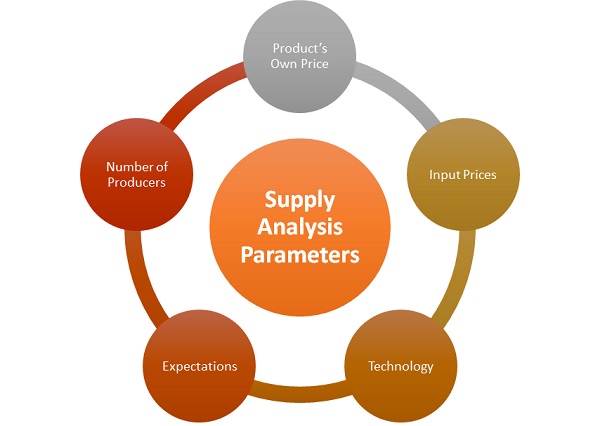- Business Concepts ›
- Operations and Supply Chain ›
- Supply Analysis
Supply Analysis
Definition, Importance & Parameters
This article covers meaning & overview of Supply Analysis from operations perspective.
What is meant by Supply Analysis?
Supply Analysis is a research and analysis done to understand the supply trends and responses to changing market and production variables. Supply Analysis takes into account the production costs, raw material costs, technology, labour wages etc. The analysis helps the manufacturers and companies to understand the impact of these variables on supply and eventually demand.
The goal of demand-supply chain is to make sure that the supply and demand work properly. The demand should be met and supply should not be more than what expected. There are lot of variables which are considered in demand analysis and supply analysis.
Importance of Supply Analysis
Supply Analysis helps manufacturers to analyse the impact of production changes, policies on increase or decrease in supply of finished goods. e.g. newer upcoming technology can help produce more goods in same amount of time. The analysis can help determine if this new technology should be adopted or not. Also if this technology can help produce more, is the demand there for more products. What impact will it have on the current labour and how would be it impact supply in the market.
Another example can be impact of increase in wages in the market on supply. The labour cost would go up and it will drive the costs of product along with it. If the supply has to be kept constant, the costs would go up and if costs have to be kept constant the supply would go down hence driving the prices up if the demand is unchanged. These are some questions which the supply analysis tries to answer.

Read More
Supply Analysis Parameters
Some of the key parameter which determine supply are:
1. Product's own price
2. Input prices
3. Technology
4. Expectations of the market
5. Number of producers present
Hence, this concludes the definition of Supply Analysis along with its overview.
This article has been researched & authored by the Business Concepts Team which comprises of MBA students, management professionals, and industry experts. It has been reviewed & published by the MBA Skool Team. The content on MBA Skool has been created for educational & academic purpose only.
Browse the definition and meaning of more similar terms. The Management Dictionary covers over 1800 business concepts from 5 categories.
Continue Reading:
What is MBA Skool?About Us
MBA Skool is a Knowledge Resource for Management Students, Aspirants & Professionals.
Business Courses
Quizzes & Skills
Quizzes test your expertise in business and Skill tests evaluate your management traits
Related Content
All Business Sections
Write for Us